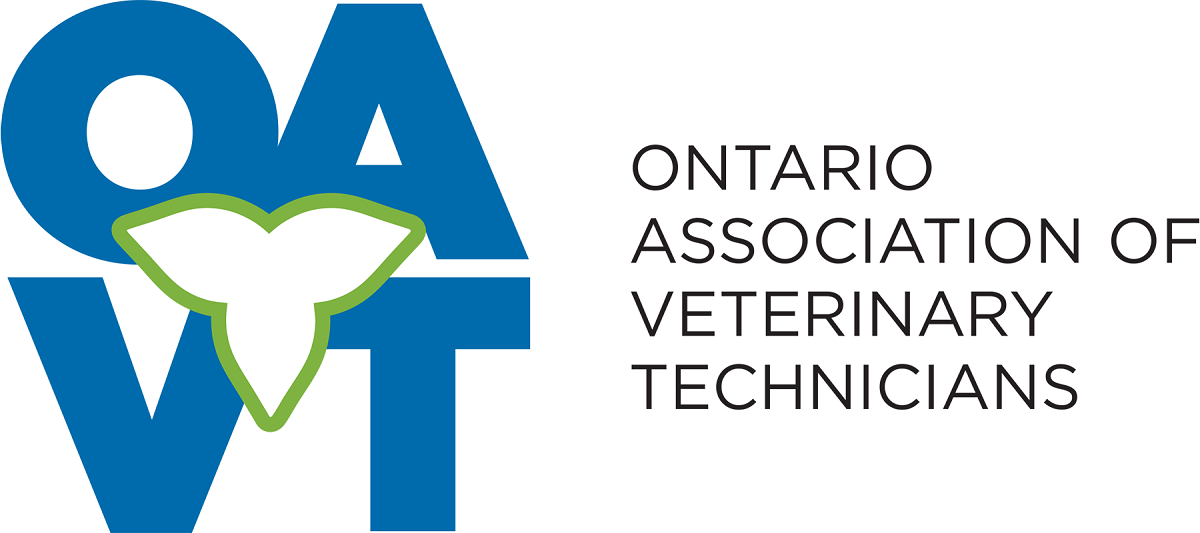ONgoing CE Opportunities
Ongoing CE Opportunities
The postings are categorized and sorted alphabetically for your convenience; they are not displayed in any order of priority or preference by OAVT. New postings are added regularly.
Table of Contents
College Programs/ Certificates/ Diplomas

This program will teach students the importance of providing an appropriate environment for a wide range of animals in both short and long term rehabilitation situations from an ecological viewpoint. The program will give students a solid foundation on wildlife rehabilitation knowledge, diagnostic and nursing skills gained through practical experience. Graduates will be able to explore a wide range of career opportunities in both the private and public sectors, including employment in natural resources, zoos, and wildlife parks, avian rehabilitation centers, natural bird sanctuaries, orphanage programs and any small or large animal veterinary clinic that receives injured wild animals. Worth 20 CE credits upon completion of program.

A graduate one-year certificate program for RVTs in response to emerging animal health care needs. Worth 20 CE credits upon completion of program
Book a seminar/Lunch & Learn or in-person course
Online Opportunities
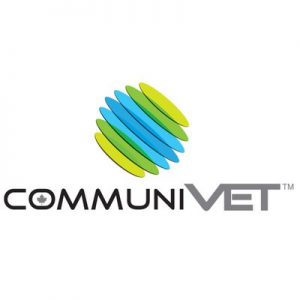
Nutritional support of dogs with cognitive disease
Sarah Wilson, BScH, DVM, Dipl. ACVIM (nutrition)
• Review of the role nutrition can play in dogs with cognitive disease
•Discussion of the nutrients shown to be beneficial in cognitive health as well as monitoring and feeding strategies that can help address the challenges that can be
experienced in these dogs.
OAVT CE Credit – 1

Obesity and…managing medical issues in the obese patient
Presented by Dr. Sheri Ross and Dr. Sarah Wilson
https://www.communivet.com/en/ca/education/webcasts/obesity-and-managing-medical-issues
Obesity is an ever-increasing problem in companion animals. We know that obese patients are at increased risk for a myriad of medical conditions. Nutritional management of obese patients that also have significant co-morbidities such as diabetes mellitus, neoplasia, or chronic kidney disease is often challenging.
During this case-based webcast, Drs. Sheri Ross and Sarah Wilson will review the nutritional management of these common clinical conditions in obese patients.
OAVT CE: 1 credit
Parasite resources in harmony – Strategic use of CPEP and CAPC materials to optimize parasite prevention and surveillance in our patients
After three years of in-clinic survival during the COVID-19 pandemic, revisiting your clinic’s parasite surveillance and prevention protocol is a quick and effective way to build and restore team trust and culture while also providing optimal preventive patient care. The Canadian Parasitology Expert Panel (CPEP) and the Companion Animal Parasite Council (CAPC) provide excellent, complementary resources that can bolster your clinic’s parasite prevention protocol.
During this webcast, Dr. Scott Stevenson explains how to utilize these management resources to quickly assess each patient’s parasite risk, identify the products currently on the market that best address these risks in your practice, and, finally, determine the importance of every team member’s contribution to the protocol’s overall success.
To watch this webinar: https://www.communivet.com/
OAVT Credits – 1 CEC

Dr. Danny Joffe will provide an overview of the development of clinical parasiticide protocols. These protocols respond to the need expressed by clients who want consistent recommendations from their veterinary staff in terms of parasite prevention and elimination. In addition, these protocols help to determine what parasites need to be killed or prevented and why, and how this will be accomplished. Throughout the webinar, Dr. Joffe will also touch on the clinical signs of the most common parasites, their diagnosis and their treatment, i.e. ticks, fleas, heartworms, etc. Finally, he will discuss team education and implementation, as well as how these protocols allow for proper in-clinic compliance.

In this detailed streaming presentation, Dr. Peter Emily, DDS, Hon. AVDC covers a variety of topics concerning the health issue most commonly witnessed in veterinary practices: dental disease. Dr. Emily provides a comprehensive outline of periodontal disease progression and also stresses the importance of preventative measures including home care and regular dental examinations. Also covered are the aspects involved in treatment through a detailed outline of routine and complicated dental prophylaxis in the veterinary practice. Contact your Vetrex representative to book.
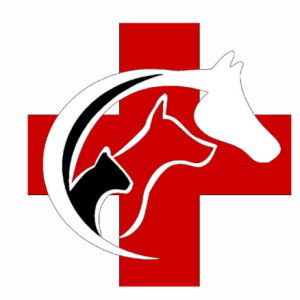
Animal Emergency Certification Courses for Registered Veterinary Technicians
LIVE VIRTUAL and ON-DEMAND RACE Approved CE CLASSES
Live Zoom Classes combine lecture, Q&A sessions, and interactive hands-on portions with feedback from the instructor. Instructors are credentialed veterinary technicians and classes offer not only RACE approved CEU but certification in animal CPR, First Aid, and emergency response. We teach the most current method of animal CPR endorsed by the veterinary industry.
ON-DEMAND TRAINING
All of our animal emergency certification course are also offered on-demand which are asynchronous, therefore there are no live components. Participants can complete the course at their own pace. Each course contains a variety of assigned readings, activities, training videos and quizzes.
Three CE credits per course are available for members of the OAVT
Courses are $89.95 each
For more information, and the schedule – https://petemergencyinternational.com/, or https://petemergencyinternational.com/product-category/virtual-live/
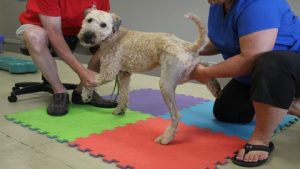
This course is designed for Veterinarians, Registered Veterinary Technicians, Veterinary Assistants, and Physiotherapists working in Animal Rehabilitation.
Rehabilitation is fairly new to the veterinary world, and a significant number of canine patients are not receiving adequate post-operative rehabilitation. Most veterinary clinics and clients do not have access to animal rehab professionals, so this course is the next best thing!
This course will take you through the phases of healing, the principles of building a rehab program, how to use a laser for the best post-operative outcomes and an easy to follow, step-by-step 12 week exercise program. We even include owner handouts and a Pre-Op Guide to put your own logo on.
This course can be done at any time, at your own pace. There is no start date or end date.
Improve patient outcomes and clinic incomes by creating your own Post-Op CCL program.
Learning Objectives:
Understand the different phases of healing and how rehab principles apply in each phase
Learn common acupuncture points to use with your laser to improve patient outcomes
Create a Pre-Op Guide for owners to help prepare the home and perform Passive Range of Motion and Massage
Follow a 12-week exercise program which includes concentric, eccentric and isometric exercises, proprioception and balance training and strength and power exercises
Learn how to implement a rehab program into your own practice to improve surgical outcomes, reduce the percentage of contra-lateral CCL rupture, and create rehab income

Practical approach to the management of acute hemorrhaging diarrhea syndrome
There is more than just a name change to consider when it comes to acute hemorrhagic diarrhea syndrome (AHDS), the syndrome formerly known as hemorrhagic gastroenteritis (HE). This lecture will provide a case-based overview to highlight recent developments in the diagnosis and management of dogs with AHDS. Practical dietary and medical management tips for successful case outcomes that every practitioner should keep in mind will also be highlighted.
Presented by Dr. Stanley L. Marks
https://www.communivet.com/en/ca/education/webcasts/practical-approach-to-the-management-of-ahds
OAVT CE: 1 credit

Let’s face it, our vaccination protocols have been hard to follow due to the havoc Covid‐19 has created in our ability to see our patients on a regular basis and to ensure their vaccinations are up‐to‐date and aligned with their lifestyle risks and regional risks. Our panel of Canadian experts is here to help and provide guidance so you can better prepare for the upcoming spring vaccination season.


This four module course in x-ray safety awareness is focused on the use of x-rays in veterinary practice. Regulatory aspects covered are for the province of Ontario. Certificate will be issued upon completion. This program should take roughly 5 hours.

Almost one third of our pet population are seniors. And as our pets age, they are at an increased risk for health conditions such as osteoarthritis, cognitive decline, renal disease, dental disease, and more. But what does that mean for us besides recommending more frequent check ups and screening tests? How can we help our aging pets stay healthy pets? Nutrition can play a central role!

Shining the light on dermatology: Use of Fluorescent Light Energy (FLE) in veterinary medicine
Dr. Anthony Yu will review the principles of FLE and cover the well-established mechanisms of action that will help to promote this therapeutic method in your practice. These mechanisms will help to:
• address infections and lower antimicrobial use;
• improve wound healing after surgery; and,
• decrease inflammation associated with perianal fistulas, interdigital furunculosis, and intertrigo.
This new treatment modality lends itself well to the practice of antimicrobial stewardship.
OAVT CE – 1 credit

You might be thinking: “Oh no! Not another itchy dog; I hate the summer!”
Have no fear, there are ways to prepare for the itchy season!
During this case-based interactive discussion, Dr. Charlie Pye and Dr. Stephen Waisglass will look into some skin infections or reactions commonly found in dermatology patients during the itchy season. They will also talk about possible causes, differential diagnoses, diagnostic and treatment recommendations, and much more.

Do you and/or members of your veterinary team sometimes struggle with “staying sane” and maintaining a healthy work‐life balance? Discover practical strategies for setting boundaries and saying “no,” as well as examples of how to communicate effectively… all from the comfort of your home or office! Presented by Marie Holowaychuk, DVM, Dipl. ACVECC, CYT.
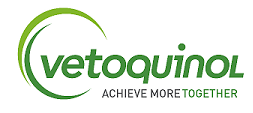
This webcast on stress-related issues in companion animals to better understand the relationship between stress, health and behaviour.

This is a 60-minute webinar.
As a veterinary care provider, you are likely feeling overworked and exhausted by the never-ending pull of patient care, client needs, and other professional obligations. When you add to these the demands of your life outside of work, such as raising children, caregiving for pets, or practising self‐care, it is no wonder that you feel burnt out. And as you move into the new year, your desire to balance work and home life will become stronger, leaving you to wonder, is it really possible to achieve a balance between your personal and professional lives?
During this important and timely webcast, veterinary wellness advocate and Thrive! collaborator, Dr. Marie Holowaychuk will discuss what work‐life balance means and how you
might achieve it with practical tools and strategies for:
‐ managing your time;
‐ preserving your energy
‐ setting boundaries; and,
‐ saying no.
Link to watch on-demand version: https://www.communivet.com/en/ca/education/webcasts/striving-for-work-life-balance
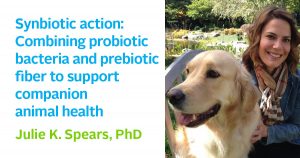
On demand webinar available as of June 4, 2021 –
Educational objectives:
• Review importance of intestinal bacteria on gastrointestinal health
• Role of probiotics and prebiotics in companion animal health
• Defining synbiotics and their benefits
• Current research supporting benefits of Fortiflora SA
In this session, the importance of intestinal bacteria on maintenance of digestive health will be reviewed. The use of probiotics to modulate immune health and improve fecal quality and dietary modulation of intestinal bacteria using prebiotics and prebiotic fibers, to maintain gastrointestinal health in dogs and cats, will be evaluated. The benefits of synbiotics, and current research supporting Fortiflora SA (Enterococcus faecium SF68 and psyllium), will be discussed.

Taking a bite out of feline dentistry
Early prevention of periodontal and dental disease is essential for cats.
During this webcast, feline specialist Dr. Elizabeth Ruelle will summarize the day-to-day strategies of a crazy cat doctor as she navigates the world of felines and clients in a regular clinic setting determined to maximize compliance and minimize team stress.
She will address all life stages and tackle key points such as:
• Dental care from kittens to adult cats;
• The current perspective on home dental care;
• The most common feline dental pathologies.
OAVT Credits – 1 CEC

This is a 60-minute webinar. To watch: https://www.communivet.com/en/ca/education/webcasts/the-abcds-of-diagnosis-treatment-heart-disease
During this webcast, cardiology specialist, Dr. Rebecca L. Stepien will cover the identification and staging of heart disease in cats, including the diagnosis and treatment of preclinical heart disease and congestive heart failure.
In conjunction with the most current recommendations of the ACVIM consensus guidelines for the classification, diagnosis, and management of cardiomyopathy in cats, she will also discuss the use of the following assessments:
• physical assessment;
• non‐echocardiographic assessment including NT‐proBNP evaluation; and,
• simple echocardiographic assessment
This webcast will be available afterwards for on-demand streaming, via the web portal CommuniVET.com.
Interpreting small animal dental radiographs represents a daily challenge.
Here’s a great opportunity to learn a few tricks to facilitate your interpretations, as well as to
discuss other dentistry topics including:
- periodontal disease;
- periapical disease;
- resorption lesions in cats and dogs.

The behaviourist’s perspective
Get inside your patient’s head: How do dogs with osteoarthritis feel and why is it important to assess their behaviour?
In this webinar, Professor Milles challenges our understanding of the relationship between osteoarthritis pain and behaviour. You will:
• Discover the ways that chronic osteoarthritis pain affects a dog’s behaviour
· Understand the relationship between negative emotions, pain and problem behaviours
· Discover how behavioural problems related to pain evolve, and how an owner’s response to a behaviour can shape its expression
• Learn how to talk with owners about their dog’s behaviour in relation to pain
• Understand how pain‐related problem behaviours affect the human–animal bond
To watch this on demand recording – https://www.communivet.com/en/ca/education/webcasts/the-behaviourists-perspective
OAVT CE – 1 credit

The Big Three: Fear, Anxiety & Stress
Available as of April 8, 2022
Fear, anxiety, and stress underlie or contribute to almost all of the behaviour problems seen by veterinarians. Attendees will learn how fear, anxiety, and stress affect overall patient health and well-being and how to approach these cases in clinical practice. Separation anxiety and noise phobia, two common behavioral presentations that affect dogs and cats, will also be discussed.
CE – 1 credit
To register: https://www.communivet.com/en/ca/education/webcasts/

This webcast will be available for on-demand viewing as of February 25, 2022:
https://www.communivet.com/en/ca/education/webcasts/the-clinical-scientists-perspective
What happens in osteoarthritic joints and how does that impact the progression of disease?
In this webinar, Professor Budsberg unravels the complex nature of osteoarthritis:
• Learn about mechanical stresses on the joint, how they cause joint inflammation and why this leads to osteoarthritis development
• Understand the role of chronic low‐grade inflammation in osteoarthritis progression
• Discover why osteoarthritic dogs can be painful not just in the affected joint but elsewhere in their bodies
• Revise the role of COX‐2 and PGE‐2 in both the clinical signs and pathogenesis of osteoarthritis
• Discover the true role of obesity in osteoarthritis – it’s more than excess weight!
